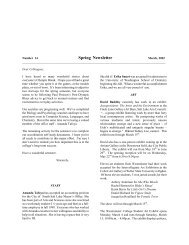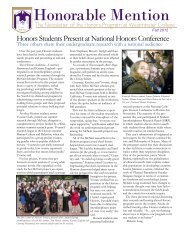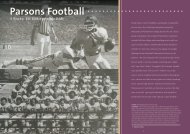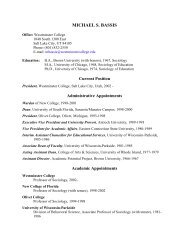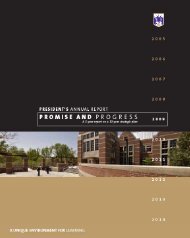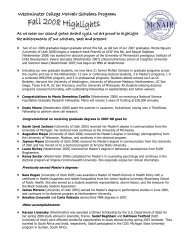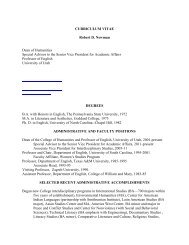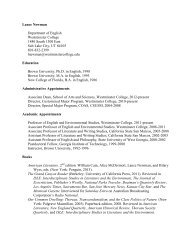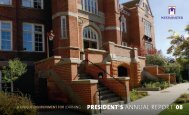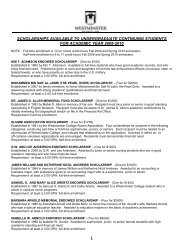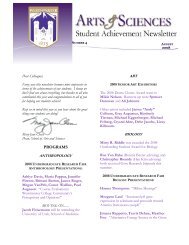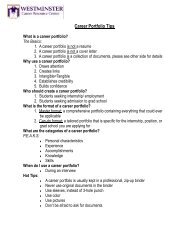electronic pdf version - Westminster College
electronic pdf version - Westminster College
electronic pdf version - Westminster College
You also want an ePaper? Increase the reach of your titles
YUMPU automatically turns print PDFs into web optimized ePapers that Google loves.
Curse Tablets, they could gain power or do harm to an enemy. This poster looks at the spells<br />
Romans used.<br />
If You Wanna End War and Stuff You Gotta Sing Loud<br />
Laura Fields, Eastern Kentucky University *<br />
Joshua Line, Eastern Kentucky University *<br />
This presentation will examine the prevalence of the “protest song” in American history and<br />
culture. We will present a history of the protest song from the Revolutionary War Era to the<br />
Vietnam War Era and today, examining the impact of these songs on Americans and political<br />
and social currents.<br />
Hazel Dickens Paddling Upstream: Inciting Social Change through Music<br />
Kathryn Engle, Eastern Kentucky University *<br />
Hazel Dickens, through her career as a singer, songwriter, and activist, has gone against the flow<br />
of traditional currents in American life. She has inspired others and increased awareness of the<br />
issues of workers’ rights and feminism and given a voice to many underprivileged and exploited<br />
people through her music.<br />
The Burqa and the French Identity<br />
Camille Hardy, Berry <strong>College</strong><br />
This study investigates the understanding behind the French ban of the burqa, and conflict<br />
between Muslim religious expression and the French identity.<br />
“What is American Music” A Response from George Gershwin’s Rhapsody in Blue<br />
Desiree Helterbran, California University of Pennslyvania *<br />
This poster explores the question of how specifically the first orchestration of Rhapsody in Blue<br />
edits Gershwin’s response to the New York Tribune article’s call, “What is American Music”<br />
The poster focuses on three important considerations to aid in answering the focus question: how<br />
the 1924 orchestration reflects the culture and music production capabilities of the mid-1920s,<br />
how public reaction to the performance of the piece shaped subsequent revisions of the song’s<br />
orchestration, and what served as the inspiration for Rhapsody in Blue.<br />
Mobility is a Right: Analyzing the accessibility of Manhattan’s subway system for the<br />
physically disabled.<br />
Catherine Chan, Macaulay Honors <strong>College</strong> at CUNY *<br />
Esther D. Gutwirth, Macaulay Honors <strong>College</strong> at CUNY *<br />
Rachel Webster, Macaulay Honors <strong>College</strong> at CUNY *<br />
Lashika Yogendran, Macaulay Honors <strong>College</strong> at CUNY *<br />
125 | P age



